Monteverdi 450 — the Monteverdi Choir and English Baroque Soloists’ tour of his three operas to 33 cities across two continents — began with his penultimate work Il ritorno d’Ulisse in patria, at Bristol’s Colston Hall. It was a marvellous occasion, uplifting and entertaining. I hadn’t been to the Colston Hall before, and was most impressed by its acoustics. Apparently it is due to have a £48 million makeover next year (call that £75 million) but it seemed new and with agreeably hard seats which counteracted any tendency the hall’s tropical heat might have to induce drowsiness.
The opera was performed in a semi-concert version, which I am more and more inclined to hope is opera-in-general’s way forward. Minimal intrusion from directors, maximum concentration on the music and, therefore, in a production as skilful as this, the drama. The gods were dressed formally, the mortals in contemporary casual wear, apart from Penelope. No props, not even a bow to test the Suitors. That was quite ingeniously solved by having Penelope herself as the bow, though she did look, at that point, like the Statue of Liberty deprived of her torch. It enabled Ulisse, once he had strung the bow (no string), to enfold her, which was moving but which she wouldn’t have allowed until later. There was a lot of coming and going, which clarified the action, and together with the (blindingly bright) surtitles left one in no doubt where the plot had got to. It was a long evening, three hours and 40 minutes with a minuscule interval, and might have benefited from a little pruning, an ‘authentic’ suggestion, surely, though unthinkable for today’s high-minded executants.
I have had good luck with Ulisse. I first got to know it in Raymond Leppard’s version with Janet Baker and Benjamin Luxon. Monteverdians owe an incalculable debt to Leppard, though John Eliot Gardiner, in his introductory note, dismisses his realisations with ‘their thinly disguised concessionary affinities to the sound-world of Respighi and Richard Strauss’, which is rubbish, suggesting that Gardiner has never heard either. Then there was Opera North’s wonderful production exactly 20 years ago; and Birmingham City Opera unforgettably mounted their own idiosyncratic version in a disused ice rink in 2005; and above all there was Pier Luigi Pizzi’s production which I saw at Madrid’s Teatro Real in 2009, conducted by William Christie with Christine Rice and Kobie van Rensburg unforgettable in the two central roles. None of Gardiner’s team is on their exalted level, but the standard of singing is uniformly high, and they semi-act with intelligence and where required dignity.
At first I thought Lucile Richardot’s Penelope was too much the tragedy queen, but she soon sang with flexibility and warmth, where needed, which characterised every aspect of the performance. Furio Zanasi came across as so battle- and travel-weary a character that one wondered if he would make it to the end, but the challenge of routing the loathsome Suitors, each brilliantly realised, gave him new energy. Krystian Adam was so moving a Telemaco as almost to steal the show. And so on: the 16 soloists, five of them doubling roles, were all vivid creations. Robert Burt did a virtuoso act as the drunken gluttonous coward Iro, but that part is annoyingly long, especially near the end, when one’s impatience for the central pair to be reunited equals Ulisse’s. With an excellent chorus and a moderate-sized orchestra of alluring instruments, the sheer sound was entrancing.
Monteverdi’s last two operas make an agreeably contrasting pair. The last, the ever-outrageous L’incoronazione di Poppea, amounts to a celebration of impulse, ambition, ruthlessness and above all carnality. A performance which doesn’t shock is a failure. Ulisse is so precisely the opposite that one wonders whether it was planned that way. It portrays and rewards patience, loyalty, endurance, fidelity — all that Poppea scorns. And each of them is equally convincing — a great shame that they are not being mounted, in Bristol at least, on consecutive evenings. Ulisse’s penetration of the human condition is deeper, indeed was not to be equalled — and surpassed — by Mozart in Figaro. The Prologue, in which Human Frailty submits to Time, Fortune and Love, is a more accurate adumbration of what we are about to witness than the competing gods in the Prologue to Poppea, and a shrewd and compassionate assessment of what we all have to endure. One does wonder, at some points in the opera, if Penelope is not addicted to grief and patience, so that the only thing she is awaiting is going to disturb her pattern of life, and perhaps that is why Monteverdi makes the final reconciling duet, for which they and we have been waiting so long, so almost brutally short — no celebration, really, more an acknowledgement that, with their hopes fulfilled, they have to find out what to do next. That may be the subtlest point of all.
Got something to add? Join the discussion and comment below.
Get 10 issues for just $10
Subscribe to The Spectator Australia today for the next 10 magazine issues, plus full online access, for just $10.
You might disagree with half of it, but you’ll enjoy reading all of it. Try your first month for free, then just $2 a week for the remainder of your first year.

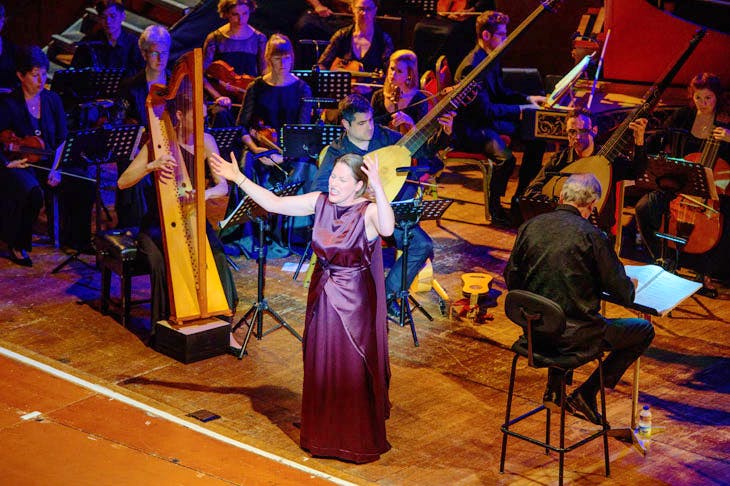

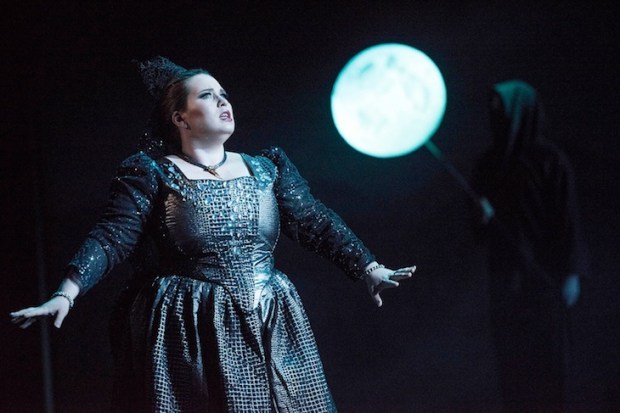
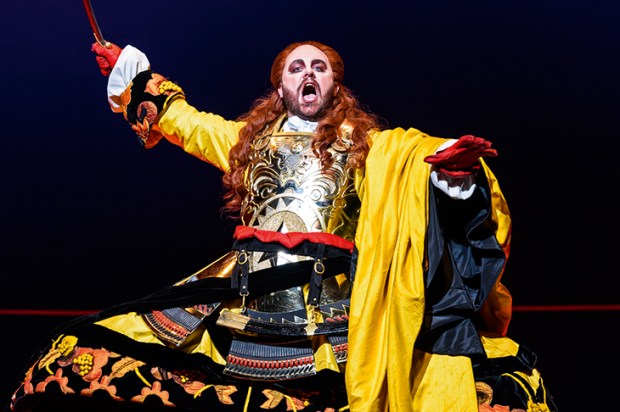
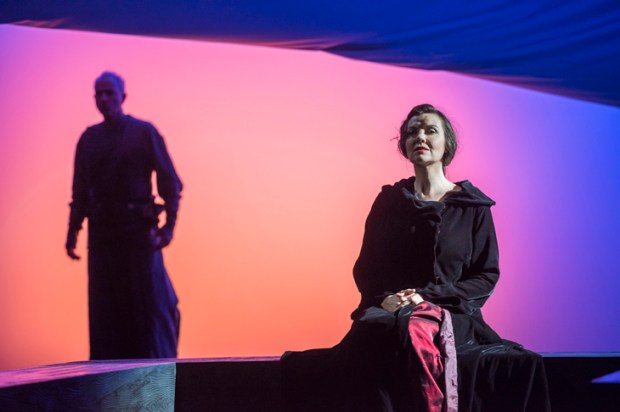
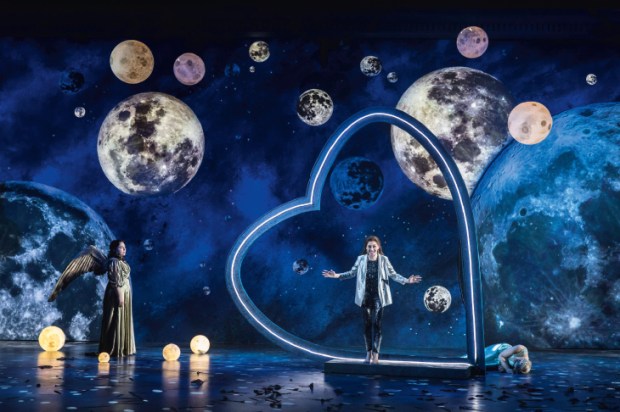
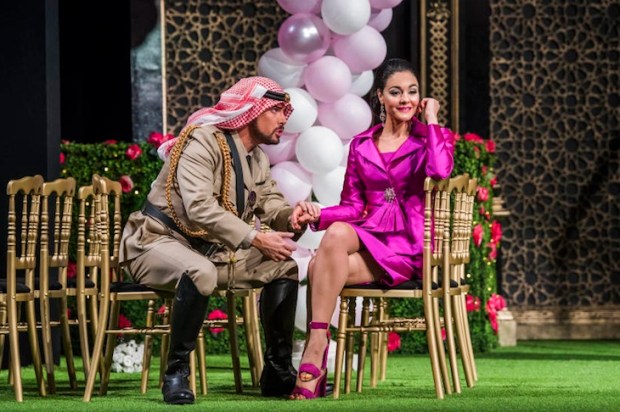






Comments
Don't miss out
Join the conversation with other Spectator Australia readers. Subscribe to leave a comment.
SUBSCRIBEAlready a subscriber? Log in